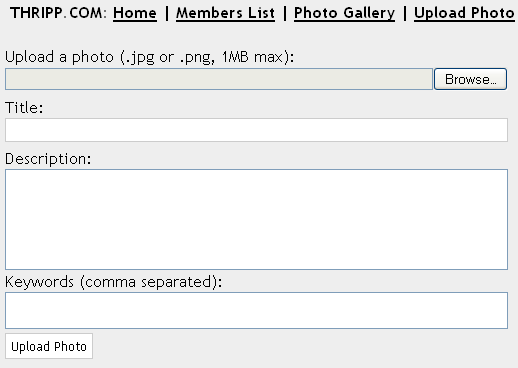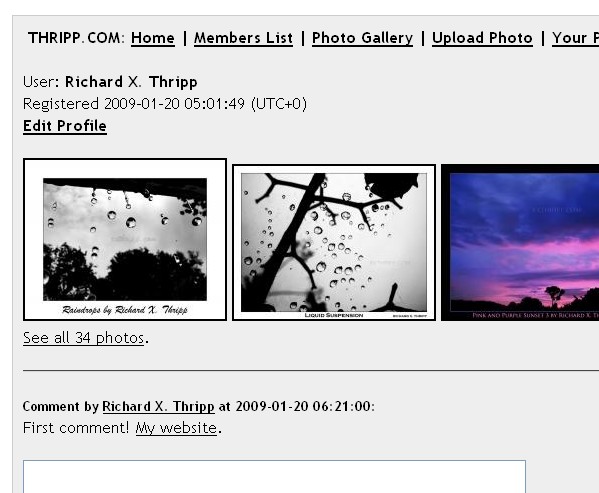In the United Kingdom, some six million domain names are registered under the .co.uk suffix. While yourname.uk would be preferable to yourname.co.uk, such registrations are banned.
This adds up to thousands of lost hours among computer users and much more wasted space. UK residents have to type the extra “.co” for every domain they visit, communicate, or advertise. Clearly, the UK does not put its users first, or the lengthy subdomain would not exist.
One practice common among universities is to give students second-rate email and blog addresses. My email address at Daytona State College is the ridiculous richard_thripp@falconmail.daytonastate.edu. Blogs take on unwieldy addresses like agessaman.blogs.gfalls.wednet.edu. Giving students first-class registrations at the second level, like richard_thripp@daytonastate.edu or richardxthripp.wednet.edu, is out of the question. Usually, administrators will have their reasons such as firewalling users, keeping the namespace open, simplifying management, or departmentalization. None of these are valid and they all put the user last, when in fact the user should be the #1 priority.
On Thripp.com, it would be tempting for me to place users in some God-forsaken subdirectory like users.thripp.com/richardx, but instead I put them right up front like richardx.thripp.com. Sure, I might run into problems later. Sure, there might be unforseen consequences. Perhaps someone will register shout.thripp.com and then later I’ll decide I want it for a site feature? While the cautious person may say, “so that all my options are open, I should not allow direct registration of subdomains in case I want to use them later,” this is folly and treats the user as a second-rate citizen. Users make up the bulk of your community and are the only important part. This means you should give them important space. Damn the torpedoes. Whatever namespaces you are reserving are less important than you think. In fact, if they are so valuable, they will be much more valuable and attractive in the hands of the community rather than on a blacklist that goes nowhere. example.com has so much potential.
At most businesses, employees park far away from the building to give parking spaces to the customers. Since employees are there all day, it’s no problem for them to walk a little ways. Contrastingly, customers may only be there for several minutes. However, when it comes to the public library, city hall, the DMV, or the post office, who do you see closest to the building? The employees themselves. Often a whole section right near the back door is reserved for them. Because the government has no competition, they have no reason to put their users first. Often, the users wind up dead-last. As corporations grow more bureaucratic and government-like, the same may happen to them. As soon as the user is put second, the business is one step closer to death.
Many websites you see start out with a splash page where you have to click “Enter.” This is a dumb waste of time. No one wants to “enter” your site. The very act of typing the URL into the web browser is entrance enough. Avoid time-wasters if you value your visitors.
Forums and other websites require you to register before you can read certain material or download certain files. Theoretically this will encourage you to come back later and build a spamming mailing list for the webmaster, but in fact 75% of people just stop right there and never register. Whatever they were going to download wasn’t important enough to be hassled anyway. Most people that do register never return and are actually useless users. They just clog up the database and do nothing. Furthermore, registration forms are often notoriously unintuitive and complex. What will often happen is a user will mistype a hard-to-read CAPTCHA, then return to type it again, then fail because their password was erased upon failing the initial CAPTCHA, and then have to do both over again. Many websites forget the email address too upon a reload. It can take the inexperienced web user a dozen tries to get through. Definitely not user friendly. Mandatory registration simply does not put users first.
Using target=”_blank” on links is bad bad bad. If the user wants to open the link in a new window, he’ll middle-click it. Otherwise, a left-click means he wants to open it in the same window. Don’t force preferences on your users. Your site should look good at least at 1024×768, preferably scaling to any size as web layouts are supposed to be fluid, not fixed. Many websites are entirely Adobe Flash, put mid-gray text on a light-gray background, disable right-clicking, or interfere with the browsing experience through other methods. If you think this “protects” your content or expresses your artistry, you’re completely deluded. It patronizes your users.
Microsoft Windows sucks for users. In Vista, whenever you execute a program or change a setting, you get at least three pop-up windows asking “are you sure?” Instead of blocking viruses and pop-up windows pro-actively, they’re allowed free reign on your system. You can only combat them by using kludges like anti-virus software and pop-up blockers, which only remove the material once it has already appeared on your computer. When Windows wants to install a “critical” update, it asks permission to restart. If you say no, it comes back a few minutes later. Say no again, and it starts a count-down timer. Heaven forbid you’ve left the room to burn a DVD or download a large file, because Windows will forcibly close all your programs and restart for your “protection.” So much for user friendliness. When you install or uninstall a software program, you are often stuck with a window that says “click OK to restart now.” If you don’t want to restart, you have to ignore it or drag the window to the corner of the screen. All these hurdles beg the question: who is the master of your computer? You or Microsoft? If Microsoft indeed put users first, the answer would be you and the question wouldn’t need to be asked.
When you call a support line, you’re left waiting for ten or fifteen minutes while a message repeats saying “your call is very important to us.” If your benevolent overlords had some respect for you, they’d stop insulting your intelligence.
Users don’t like being called idiots, being bamboozled, jerked around, put off, or made fools of. In fact, they may become violent and vindictive when patronized. Show some respect, give them the best namespaces, put them first on the list, and don’t boast about how much you value them.



